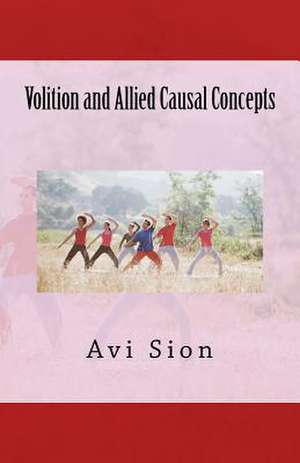Volition and Allied Causal Concepts
Autor AVI Sionen Limba Engleză Paperback
Preț: 116.73 lei
Nou
Puncte Express: 175
Preț estimativ în valută:
22.34€ • 23.08$ • 18.58£
22.34€ • 23.08$ • 18.58£
Carte tipărită la comandă
Livrare economică 19 martie-02 aprilie
Preluare comenzi: 021 569.72.76
Specificații
ISBN-13: 9781495927836
ISBN-10: 1495927830
Pagini: 416
Dimensiuni: 140 x 216 x 22 mm
Greutate: 0.48 kg
Editura: CREATESPACE
ISBN-10: 1495927830
Pagini: 416
Dimensiuni: 140 x 216 x 22 mm
Greutate: 0.48 kg
Editura: CREATESPACE
